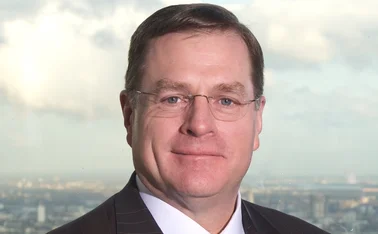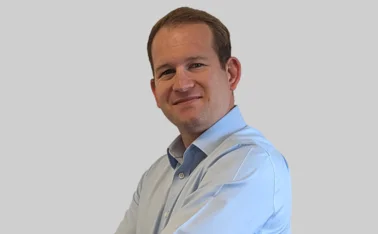
Power hour: Centres of attention

This month's Power Hour looks at the value of insurers' regional underwriting centres. Many smaller insurers or new entrants to the market have set up offices populated with 'empowered underwriters'. But how good are these offices, are brokers really getting the service they need and how long will they actually hang around? Liz McMahon reports
Attendees:
Charles Earle, CEO, Arista
Graham Gomm, chairman of IIB, director of Gomm Insurance Brokers
Tony Sault, Ernst & Young insurance director
Graeme Newman, business development director, CFC
Tim Rolfe, CEO, UK General
Paul Upton, CEO, Evolution Underwriting
Do brokers really need underwriting centres to do business in this day and age?
Charles: I think in every survey of broker needs there is a request for it and for more of it than currently exists.
Graham: Speaking as a broker, I would agree entirely. A local underwriter is aware of the market and aware of the situation. If an underwriter is based in a different centre, do they really know the area they are talking about?
Graeme: It does come down to the business model you are using. Geography might be more specific if you are dealing with property risks for example. We are a professional indemnity (PI) specialist and location isn't as important as the specialism and expertise in the sector we are targeting.
Tim: It is all about the relationship and the way it develops; it just so happens that small regional teams tend to be more stable. The local relationship hinges around trust because we work in a marketplace where our product can be fairly ambiguous and grey around the edges.
Graham: And that trust is built up more easily at a local level.
Charles: The message that I get from brokers is whatever your model, deliver it well. I take the point about technical PI being the same regardless of where it is based but you must deliver it well and, given the choice, we'd prefer it local to remote. It may not be practical but I am sure brokers would prefer to have their local PI underwriter just around the corner.
Paul: There is a danger however that you end up with all the cost, exponential admin and overheads that come with it but you haven't put the right people in or got the right management in place and therefore you don't get the benefits.
Tim: There is also a tension between the overall objectives and how the business is being run. A branch manager would look at the portfolio from a local perspective and this may conflict with the central line view of business.
Charles: That's when you end up with an insurer who looks round and thinks - "we've got all this cost out in the regions when actually all the decisions are being made centrally". They then shut wherever it is. It is the worst of both worlds. Empowered underwriting isn't just about saying that this particular underwriter has a certain amount of authority; it's about having people out there and giving them the authority to actually trade locally so that they are more than just accessible. If you want to get the most out of a regional office you need to ensure that when an underwriter is approached by a broker with a problem, they have the power to solve it. The whole organisation needs to commit to setting up regionally and work that way rather than simply doubling up on the costs. This model can work but other models work too.
How much of this is just a marketing exercise?
Charles: There is the mentality that a regional office can merely act as a sales task alongside a central processing centre which deals with everything else. To my mind this results in a hugely disjointed business. When you phone the people in the sales office, they don't know what's being processed. What really needs to happen is for the focus to be placed on process and strategy. A couple of insurers have moved in this direction and I am yet to see anyone handle it really well.
Paul: There's also a marketing exercise around the soft market cycle as premium volume is hard to come by. If you want to write a lot of business, you've got to be cheap. You may want to develop a regional presence for credibility purposes. Fundamentally, if you didn't have to be there, I don't think many people would.
Charles: If you are going to employ an underwriter, why would it be more costly to employ him in Manchester rather than London?
Paul: You'd have to have two offices to do that.
Charles: He'd take up the same amount of space. He wouldn't need a seat in both offices.
Paul: It depends on your model. You can have a model which says you can get more utility from a person in a one-process environment, with one technology platform, one management protocol. I may get 40-60% more out of that person; you can get synergies from having everyone in one place. There's management control and corporate governance that can be achieved in a much more guaranteed way than through a devolved structure.
Charles: But that is the good broker relationship and it needs to be paid for. It's swings and roundabouts.
Graeme: It's a question of implementation, rather than the model. The same problems can arise whether you are centralised or not. When I ran a small independent broker did I actually want my carrier getting close to my risks? We talked a lot about trust and we're talking here about the small to medium-sized enterprise (SME) market and some brokers may feel slightly threatened by a large insurer setting up in their area which could involve lots of advertising to consumers in the SME sector.
Tim: There are other dynamics to it. Ownership is very important. What do I mean by that? Well you can be a teenage hoodie and commit as much crime as you want in Peckham but you can't do that on the Isle of Scilly because you will get found out very quickly and you won't survive in that community for very long. In the same way, if you are in Newcastle and are misbehaving, providing poor service, are rude, unpopular with brokers there, then you are going to meet at an institute dinner and even at Tesco's on a Saturday morning. When your children may even go to the same school, there is a good deal of ownership there and therefore that relationship has to work and it has to be strong.
Is it fair to say that some of the newer regional insurers have been successful because some of the larger insurers have pulled out? So what happens if the big composites' appetite changes and they want local offices again?
Paul: The big boys can't go back. If larger insurers were doing what they should be doing, Evolution wouldn't have happened because there has been no shortage of cash in the last five years. It's not difficult to get business placed in the UK market; there's capacity falling out of every office you look at. The bottom line is there have been investment decisions made over the last five years which have irrevocably wounded the large insurers' capacity to deal with smaller brokers and that's where my and others round this tables' business came from.
Charles: I think they are incapable of doing it right. I really can't see them in the next two or three years admitting they were wrong. Big companies find it really difficult to run effective frontline services.
Does it matter who the insurers are? Isn't it more about the individuals hired locally?
Paul: It depends what your motivation is. Is it salary? Then most large insurers pay more. If it's freedom that you want and to make a difference and have an impact then don't go to one of the composites. You can work for a billion pound organisation but you will not have that kind of direct responsibility.
Charles: I took on someone to run one of our regional operations and in the hiring process I said: "We want you to grow this operation first to £10m and then £20m". He said he dealt with far more than that and I responded: "Yes, but this will be your £20m". They can take back ownership and control and for the right people that makes a huge difference.
What processes are in place to measure the financial success of regional offices? When do they start making money?
Tim: It will vary depending on what kind of market you are in. If you've got a team who already has good relationships and is well known locally, it can be a lot quicker but in the current climate it's the same as with any business in that you wouldn't find many people who were setting up investments like that with a return period of less than two or three years.
Charles: Whether you can get your expense ratio right early on is important but what's more difficult is you could be writing nothing but new business and may also be taking over an existing book of some sort. That said, there's no reason why you shouldn't see a regional operation writing the sort of business we write and making a contribution to the centre around the 12 month mark.
How far will this model go - will there be an office in every town?
Charles: I can't see anyone having a big enough market share to achieve this. It depends on the sort of business you're targeting. I might suggest that if you have a regional strategy going, it's probably between five and 10 offices at maximum.
Graeme: I don't think anybody knows the real answer. We're set up to service 25 different countries from one central office. If you set up with the right processes and controls, you could even have one European centre. It's quite possible in this day and age - the technology is there. The concept of what is an optimum number of offices to service from a geographical perspective doesn't make sense to me. It's much more about product line - some could be incredibly regionally specific and would need wide coverage.
Charles: It's going to depend on what the broker demand is. Are there enough brokers in Aberdeen to make it worth your while? I wouldn't think so. Are there enough in Manchester and the North West to justify a regional office? I would say definitely yes and there is every shade of grey in between.
Tony: There is also a huge amount of duplication between the role of the broker and the insurer. With the element of trust there, there is a situation where you have a broker receiving documentation which they feel they need to review before it goes out to clients. Time and time again we see this duplication of roles. That incurs a cost on both sides.
Paul: Regional networks can be a sticking plaster to cover up crappy processes and services.
Charles: I remember opening an office for another company that is now being shut. When I opened it, our brokers asked: "How long will it be here"? I replied: "As long as you give it business". I'd say that hasn't happened.
Paul: If that's the area I think it is then you are not alone, are you? Maybe this is a sign that the model isn't right for certain territories.
If regions become more empowered, will it be at the expense of London?
Paul: The way the large companies are structured, the financial and actuarial power rests firmly in London much more than it did 10 years ago. Most insurers I deal with now are point of sale people - they might have underwriting titles but they are essentially a presentable face that runs away and talks to the finance department to get a deal agreed. Taking that even further, the days of a branch manager having serious portfolio control is a bit fanciful and actually a lot of the dispersed staffing is around having a sales presence. This idea of empowerment can be marketed as a capability but in most large companies that will be pretty perfunctory. If they really want to get something done they bring it back to London. So we have to go through all those layers of authority and referral anyway. All that said, it's possible to have a successful regional operation.
Charles: There's business out there that is best handled by regional operations and what's happened is, that has shifted partially away from the big operators because they screwed it up and their place has been taken by some other players. That hasn't affected the balance of power between London and the regions - it just means that someone else is handling the business.
Graham: And they will do as long as they handle it well. That's what it's all about - service, service, service. n
Only users who have a paid subscription or are part of a corporate subscription are able to print or copy content.
To access these options, along with all other subscription benefits, please contact info@insuranceage.co.uk.
You are currently unable to print this content. Please contact info@insuranceage.co.uk to find out more.
You are currently unable to copy this content. Please contact info@insuranceage.co.uk to find out more.
Copyright Infopro Digital Limited. All rights reserved.
You may share this content using our article tools. Printing this content is for the sole use of the Authorised User (named subscriber), as outlined in our terms and conditions - https://www.infopro-insight.com/terms-conditions/insight-subscriptions/
If you would like to purchase additional rights please email info@insuranceage.co.uk
Copyright Infopro Digital Limited. All rights reserved.
You may share this content using our article tools. Copying this content is for the sole use of the Authorised User (named subscriber), as outlined in our terms and conditions - https://www.infopro-insight.com/terms-conditions/insight-subscriptions/
If you would like to purchase additional rights please email info@insuranceage.co.uk
Most read
- Zurich strikes five-year capacity deal with MGA Freedom Services
- Aviva to open branches in Chelmsford and Southampton
- Dual to open two UK offices as McGinn’s regional push gathers pace







